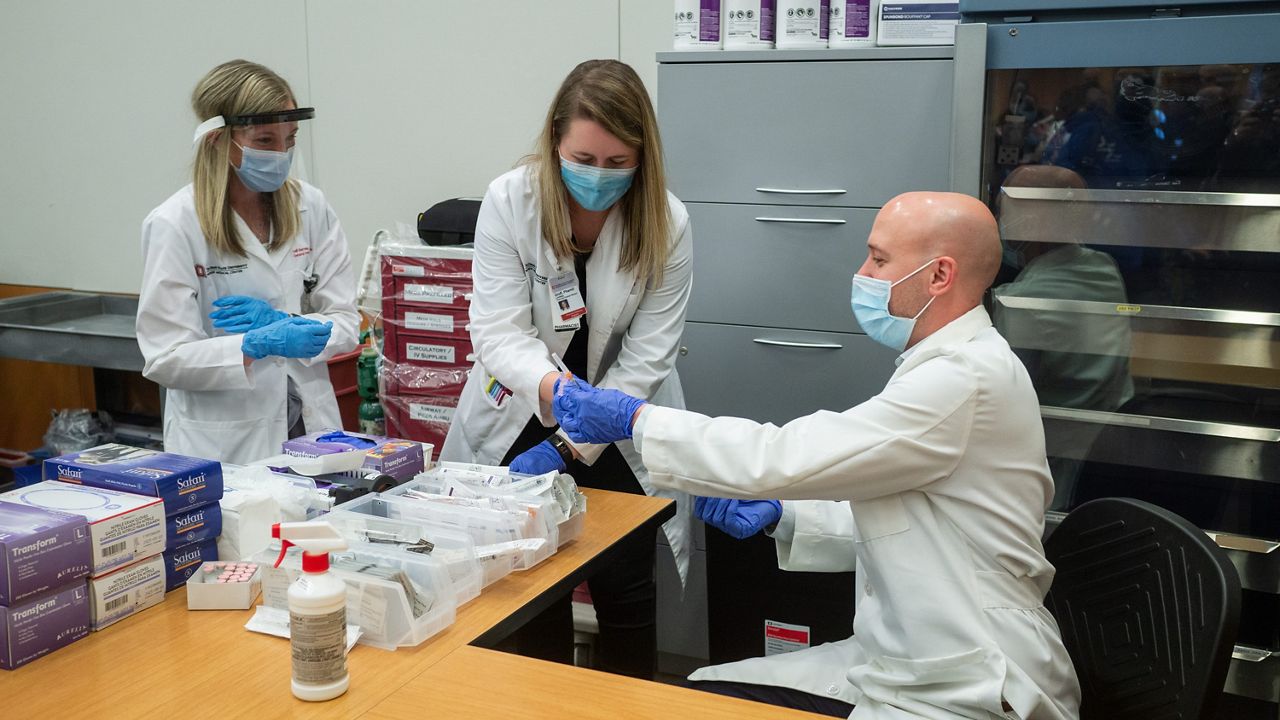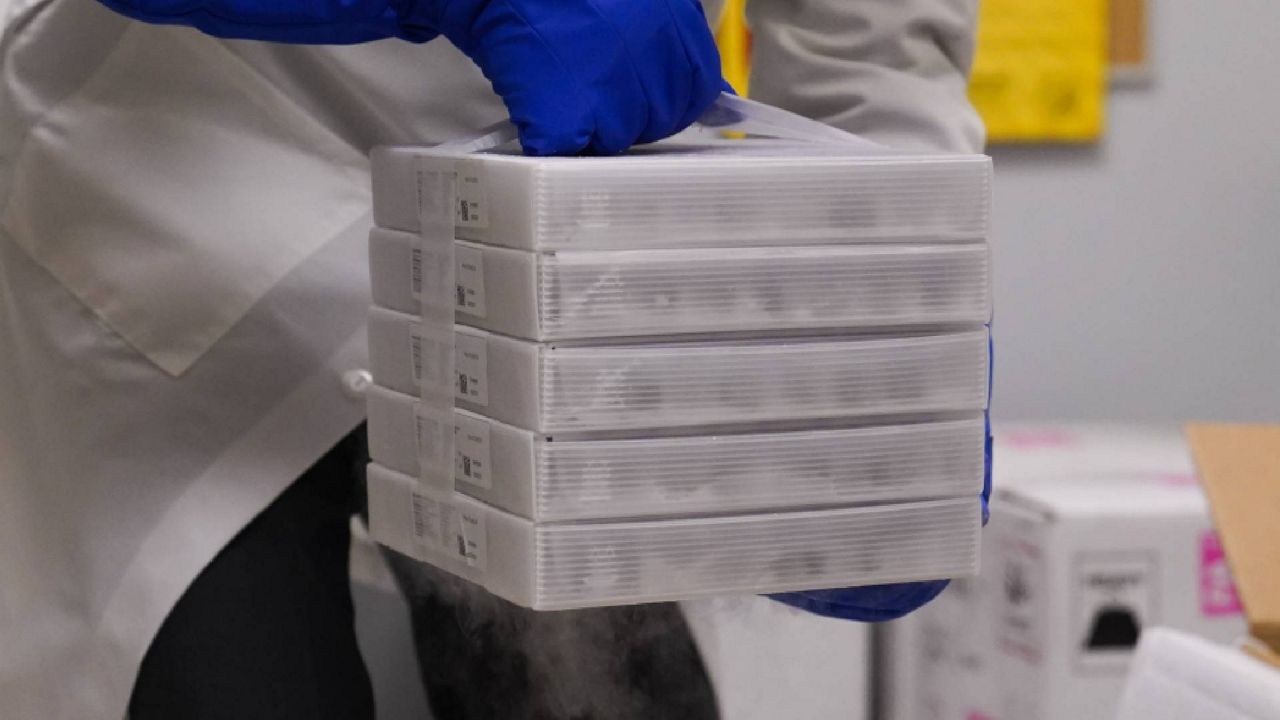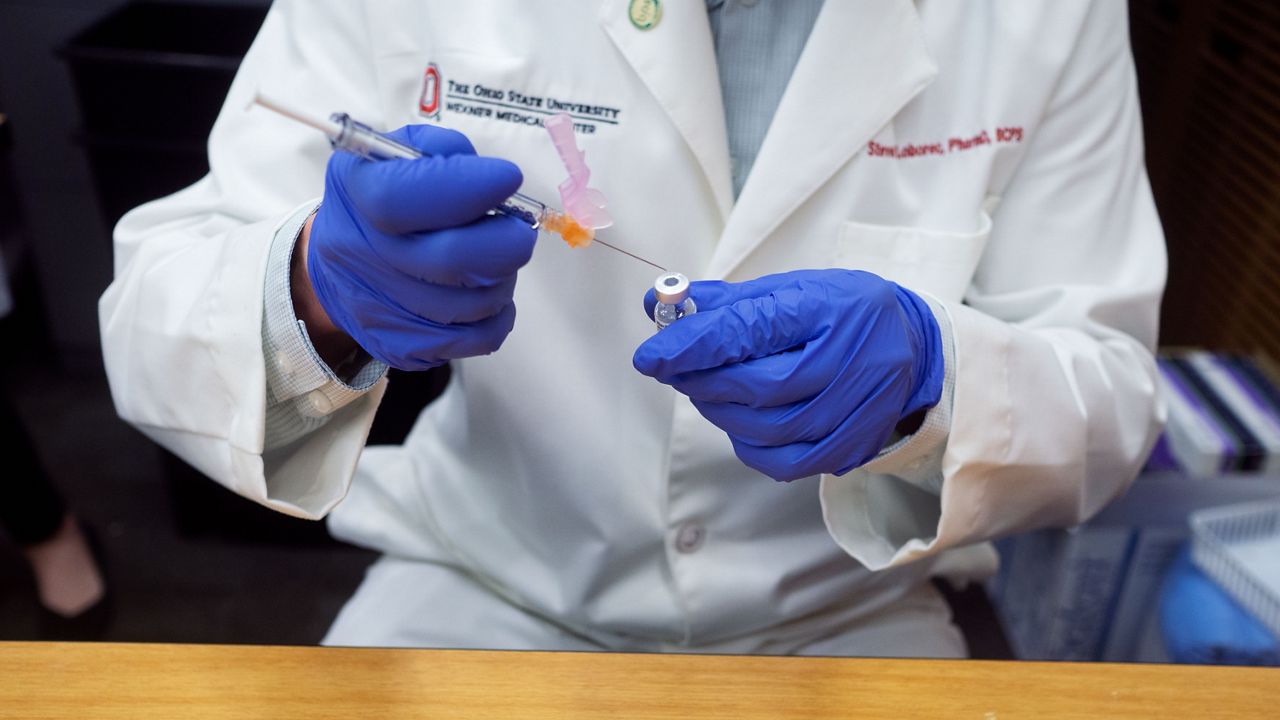CINCINNATI — The Center for Closing the Health Gap has been encouraging minorities to get the COVID-19 vaccine through a series of virtual discussions.
What You Need To Know
- The Center for Closing the Health Gap hosted The Covid-19 Vaccine — Should You Take It?
- A panel of health professionals discussed the importance and effectiveness of the vaccine
- They all agreed that minorities should get the vaccine
The first event on Saturday, called "The COVID-19 Vaccine — Should You Take It?" brought in a panel of officials to explain why getting the vaccine is important.
“This has been 20 years in the making this is not something that was fast-tracked at all,” said Dr. Louito Edje of the Cincinnati Medical Association. “The only thing we even knew that the outside of the virus was what we needed to target, as far as our study because we knew everything else about it.”
Edje is a big advocate for taking the vaccine. She was one of three panelists to be a part of the vaccine trial. She said the Moderna vaccination is more than 90% effective, but does have a few side effects.
“For some people, they have had a headache, low-grade fever, possibly muscle aches, and possibly joint aches,” she said. “Those have typically lasted no more than a day, and they've never been anything that would have allowed the person to be in a situation where they would not want to go to work.”
Despite the side effects, many panelists strongly suggest that people of color get the vaccination.
“We also know coronavirus is especially in Black, Latin X and Native communities in terms of severe disease and deaths,” said Dr. Camille Jones, with the Cincinnati Medical Association. “And so we can't afford to have a knee-jerk avoidance to potentially lifesaving preventive therapy.”
The first batch of vaccinations hit Ohio this week, but that doesn’t mean everyone will have access to it. Jones said there are certain people who will be able to get it first.
“There’s a tier that’s recommended right now, which is first high-risk healthcare workers, so it won’t be all health care workers,” she said. “So it’s not going to be all healthcare workers but those with high exposure, long-term residents and staff.”
But she expects that most people will have access to the vaccination by the end of 2021. However, she warns that even for those who get the vaccination should still wear their masks and keep their six feet distancing.
“What these vaccines are doing is they're decreasing your risk of becoming symptomatic, hospitalized, and having severe disease,” she said. “But, but it's not necessarily decreasing your risk of getting infected so you could be okay yourself.”
Panelist Dr. Michael Thomas with the Cincinnati Medication Association said he hopes that the discussion encourages people, but especially those of color, to get the vaccination.
“Right now we’re trying to get that message out,” said Thomas. “It's very important that you listen to those of us who've gone through the trials and it's very important to listen as other people start taking the vaccine to let people know it's okay and to get that second shot, because that's also vitally important in this whole process.”
The Center for Closing the Health Gap plans to host another discussion about the coronavirus on Dec. 19.









